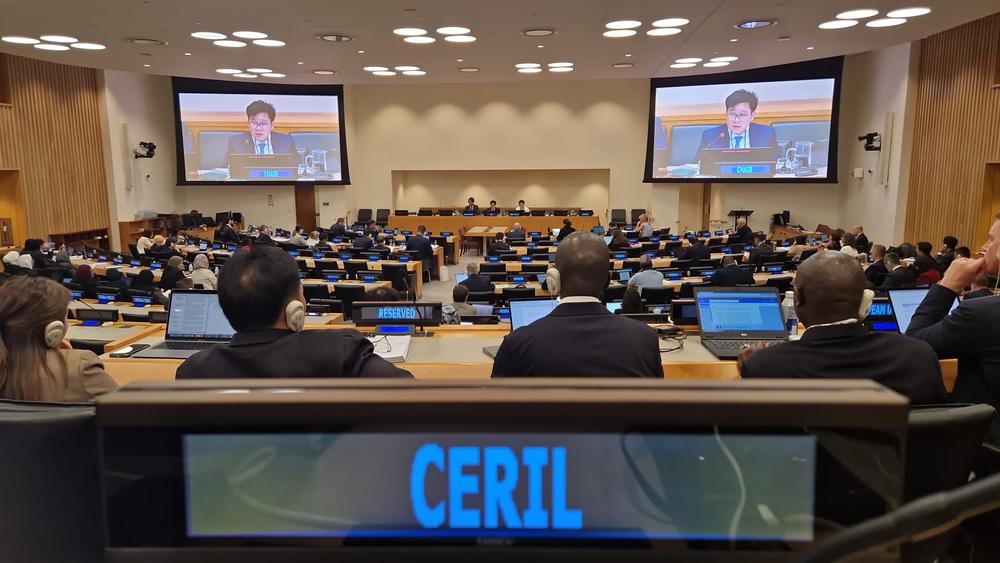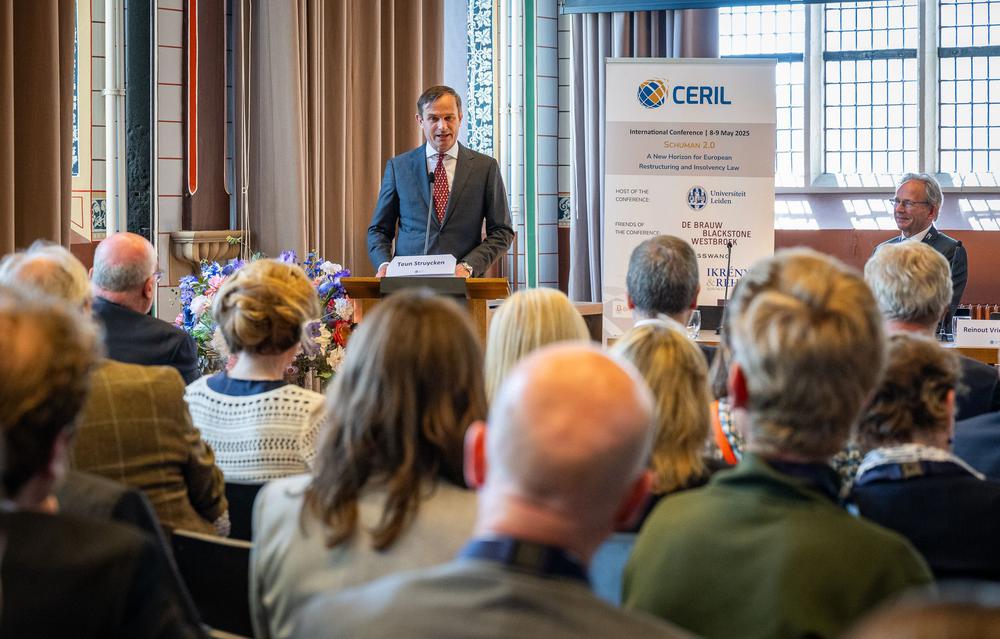Europe Gathers in Leiden to Rethink Insolvency Law

This year marks a significant milestone for Europe: the 75th anniversary of the Schuman Declaration. Signed on 9 May 1950, Robert Schuman’s visionary statement laid the foundation for economic cooperation across borders and ultimately the creation of the European Union. In honor of this legacy, the Conference on European Restructuring and Insolvency Law (CERIL) is proud to host its 3rd International Conference, held in the historic city of Leiden, the Netherlands, on 8–9 May 2025.
Titled “Schuman 2.0: A New Horizon for European Restructuring and Insolvency Law”, the conference celebrates Europe’s ongoing journey of legal and institutional development. As economic integration continues to advance, the demand for effective, modern restructuring and insolvency frameworks becomes ever more pressing. The conference offers a timely platform for reflection and forward-looking dialogue. This year’s program brings together leading judges, academics, policymakers, and legal practitioners from across Europe.
The first day of the conference reflects on the European Insolvency Regulation (EIR 2015), which marks its tenth anniversary since entering into force. Through a comprehensive SWOT analysis - examining strengths, weaknesses, opportunities and threats - participants will assess the EIR’s impact and consider ways to enhance cross-border insolvency cooperation. This evaluation will set the stage for discussions and for offering critical insights into its practical functioning over the past decade, identifying patterns of use and areas for reform ahead of the 2027 review. Topics include avoidance actions and their cross-border effectiveness, the interplay between EIR 2015 and preventive restructuring frameworks (Annex A), communication and cooperation between insolvency practitioners and courts, coordination of group insolvency proceedings. CERIL will also present the findings of its recent European survey on the EIR 2015.
The second day turns to the future of European insolvency law. One central topic will be the European Commission’s Proposal for a Directive on Harmonising Certain Aspects of Insolvency Law (COM/2022/702), where participants will explore issues such as the definition of insolvency and the criteria for opening proceedings, the duties of directors such as the duty to file, the creditor committees, and pre-pack proceedings. A key question running through the debate will be how to balance harmonisation with necessary flexibility among Member States. A second major theme will be the proposal for a 28th EU regime on insolvency law. The conference will examine the rationale behind this idea, its potential added value in the European legal landscape, and whether a standalone regime could complement - or challenge - existing national systems. The final session of the conference brings together a judicial panel that will reflect on the conference’s key insights and present CERIL’s forthcoming Judicial Reflection Paper on confidentiality, secrecy, and privilege. The panel will address the themes of disclosure obligations, the principle of good faith negotiation, and provide the judicial perspective on some of the key issues explored throughout the conference.
Keynote Speakers
The conference will include an opening address by EU Commissioner Michael McGrath (delivered virtually), as well as a keynote address by the Dutch Minister for Legal Protection, Teun Struycken. These high-level contributions will offer valuable insights into current EU initiatives and national developments in the field of restructuring and insolvency law. The Commissioner and the Minister are expected to share their perspectives on the future direction of European insolvency frameworks and the role of legal harmonisation in strengthening the internal market. Their messages will not only inform the discussions but will also serve as reference points throughout the conference, inviting participants to reflect on how legal practice and academic dialogue can support broader policy objectives.
CERIL’s Message to Europe
At its core, the conference sends a clear message: European restructuring and insolvency law must continue to evolve in step with the realities of an integrated and dynamic internal market. Through expert analysis, comparative insights, and judicial reflection, the event seeks to contribute meaningfully to ongoing EU-level discussions. It aims to offer informed perspectives to the European Commission on the functioning of the EIR 2015 ahead of its 2027 review, provide structured feedback on the proposed Insolvency Directive, and present considered views on the potential design and role of a 28th regime. Drawing on the experience of judges at the heart of cross-border practice, the conference offers both a technical and practical foundation for future policymaking in this evolving field. By critically reflecting on the last decade of cross-border cooperation and exploring future pathways for harmonisation, the conference aims to support the development of a coherent, effective, and forward-looking European insolvency framework - one that serves both legal certainty and economic resilience across Member States and beyond.
CERIL will host the conference at Leiden University, which celebrates its 450th anniversary. Founded in 1575, Leiden University has long been a cradle of European scholarship, home to renowned thinkers such as Grotius, Spinoza, Descartes, and Einstein. CERIL looks forward to welcoming participants from across Europe to this special occasion in Leiden- a city steeped in history, bursting with spring tulips, and ready to host the next chapter in Europe’s insolvency and restructuring landscape!
About CERIL
The Conference on European Restructuring and Insolvency Law (CERIL) is an independent non-profit, non-partisan organisation of more than 100 lawyers and other restructuring and insolvency practitioners, law professors and (insolvency) judges committed to the improvement of restructuring and insolvency laws and practices in Europe, the European Union, and in its Member States.
From its inception, CERIL has been a voluntary organisation, based on the shared commitment of its conferees to collect and present their best insights. CERIL establishes a platform that allows for the exchange of ideas, in-depth discussions, often in the context of joint studies and statements of advice on technical and policy matters. In its work, CERIL employs both comparative and international approaches. CERIL supports legislative initiatives on a European Union or national level, but also discusses fundamental principles and concepts.
CERIL regularly publishes Statements and Reports on current topics in the field of restructuring and insolvency law. CERIL’s vision is to provide a unique independent perspective to endorse significant long-term improvements in restructuring and insolvency systems across Europe and the European Union.


Comments
Log in to read and post comments